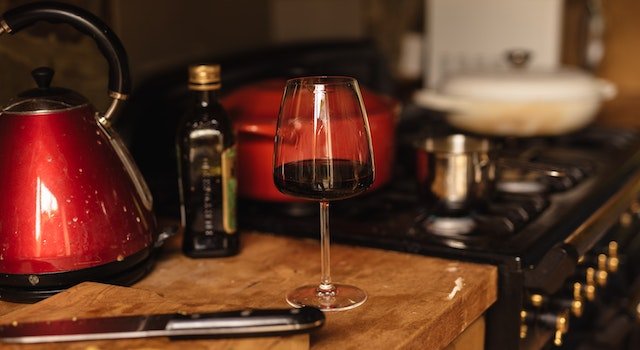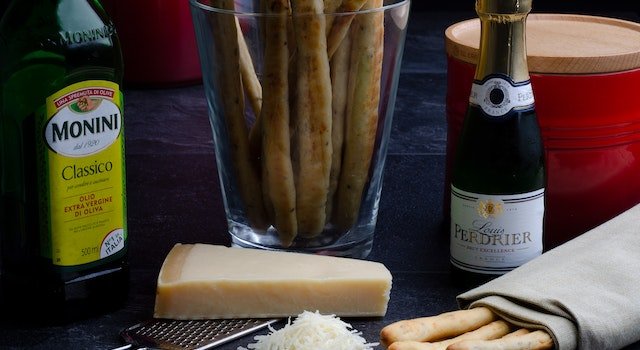Is Rice Wine And Cooking Wine Halal Or Haram?
Muslims are not allowed to consume khamr (alcohol). Referring to the enticing ingredients produced by fermentation, which include alcohol, sugar, and water. Alcohol is regara nagas nags. Thus, any meal that comes into contact with alcohol is haram.
It would be considered halal if rice or cooking wine were created entirely from halal materials and did not include haram ingredients or additives. However, it would be regarded as haram if it contained ingredients such as alcohol or was made in a haram manner.
Rice Wine
Rice wine is a form of alcoholic drink that is produced from the fermentation of rice. It is a popular drink in several Asian countries, especially China, Japan, and Korea. It has a lengthy tradition that goes back to ancient times and remains integral to various cultural and social customs.
History of Rice Wine: Rice wine has been an element of Asian culture for many thousands of years. The earliest documents of the production of rice wine go back to the Chinese Shang Dynasty, which existed from the 16th to the 11th century BCE. Rice wine was consumed in ceremonies of religious significance and by the nobility.
Over time, the production of rice wine spread to other regions of Asia as well, including Japan and Korea. Today, every nation has its own distinct rice wine varieties that reflect its climate, customs, and food items.
How Rice Wine Is Made: Making wine from rice involves several steps. The rice is first washed and then soaked in water for a few hours. Then it is steamed until it softens. Then, a form of yeast known as Koji is added to rice, which helps break down starches into sugars.
The rice and koji mix can then be left to ferment for days or even weeks. In this period, the sugars convert to alcohol, which results in a slight sweetness and tangy taste.
Following fermentation, the wine is then filtered and stored. Certain varieties of wine made from rice are aged for a few months or even years to create more flavor and a deeper, more complex flavor.
Types of Rice Wine: There are various kinds of rice wine, each with a distinct taste and texture. Here are a few of the most well-known varieties:
- Sake is a Japanese rice wine made of polished rice. It also has delicate, floral flavors. It is typically served chilled or chilled at room temperature.
- Shaoxing wine is a Chinese rice wine made of glutinous rice. An intense, nutty flavor characterizes it. It is frequently utilized in cooking, especially for stir-fries, marinades, and sauces.
- Makgeolli: Makgeolli is a Korean rice wine made of unpolished rice. It has some sourness. It is typically served as a bowl with a spoon and is loved by younger people in Korea.
Cultural Significance of Rice Wine: Rice wine has played a key role in various cultural traditions across Asia. In China, rice wine is typically used during wedding ceremonies, in which couples drink together from the same cup to signify their union.
In Japan, sake is an integral part of many traditional occasions, like weddings or festivals, as well as religious ceremonies. It is typically served in smaller cups and is regarded as a symbol of hospitality and friendship.
In Korea, makgeolli is usually considered part of rural life. It is thought of as a drink only for laborers and farmers. Recently, it has gained popularity among young people living in urban areas too.
Cooking Wine
Cooking wine is a kind of wine that’s designed for use in cooking. It gives flavor and depth to many dishes, from stews and sauces to dressings and marinades.
History of Cooking Wine: Wine for cooking has been used in cooking for a long time. In the time of ancient Rome, wine was frequently added to food as a flavor enhancer and was also used as a cooking ingredient. As time passed, adding wine to food became popular across Europe and, eventually, other regions.
In the late 19th century, cooking wines became more widely available, and they were made specifically for cooking use. Today, there are many kinds of cooking wine available, each with its own distinctive flavor and characteristics.
Types of Cooking Wine: There are various kinds of cooking wine, each with a distinctive flavor profile. Here are a few of the most popular varieties:
- Red wine: This kind of wine for cooking is made with red grapes and has a luscious and strong flavor. It is typically used in roasts, stews, and sauces.
- White wine: This kind of wine for cooking is made of white grapes. It has a lighter, more delicate, and delicate flavor. It is commonly employed in pasta sauces, seafood dishes, and chicken recipes.
- Sherry: This wine that is fortified has a caramel-like, nutty flavor that is commonly used in soups, sauces, marinades, and sauces.
- Marsala: This fortified wine has an earthy, sweet taste and is frequently utilized in Italian dishes like chicken marsala.
Uses of Cooking Wine in Cooking: Cooking wine is an ingredient that is versatile and can be utilized in a variety of dishes. It is commonly employed to help deglaze pans, which means to melt the food particles that have been cooked and are left over after cooking vegetables or meat. This process can add flavor to gravies and sauces.
Cooking wine can add flavor to dressings, marinades, and vinaigrettes. You can use it to cook stews, cook meats, and enhance the flavor of broths and soups.
It is important to remember that not every cooking wine is permissible for certain specific dietary restrictions. Certain cooking wines can have alcohol in them, which isn’t allowed in Islam. Muslims need to examine the ingredients of the wine used in cooking before making use of it.
Halal Certification
Halal certification is a procedure through which a product or service is confirmed to conform with Islamic food laws and other regulations. It requires a thorough inspection and review of the manufacturing process, along with the ingredients and general quality assurance measures, to ensure that the product complies with the halal requirements.
History and Importance of Halal Certification: Halal, which is permissible in Arabic, is essential to Islamic dietary laws. Muslims are obliged to consume food and beverages that are considered halal and avoid foods that are considered haram or forbidden. As the Muslim population has increased, there has been a growing demand for products and services.
Halal certification was created as a response to this need and as a method to ensure that products and services meet the standards of Halal. It also ensures Muslims that the goods they consume are safe and free of any prohibited or haram-related ingredients.
Process of Obtaining Halal Certification: The procedure for getting a halal certificate involves various steps. First, the company or provider has to apply for halal certification with a halal certification organization. The application contains details regarding the service or product, including the components used in the manufacturing procedure and the current quality assurance measures.
The halal certification agency inspects the product’s production facility to verify that the process and products conform to Islamic diet laws and other halal-related requirements. The inspection analyzes the components used, the manufacturing process, and quality control procedures.
After the inspection is completed, the halal certification agency issues a halal certification, which certifies that the service or product has been inspected to conform with halal standards. The certification is valid for a specified time frame, following which the company or service provider has to submit a renewal application.
Benefits of Halal Certification: Halal certification provides a variety of advantages for both consumers and manufacturers. Halal certification for consumers offers confidence that the items they consume comply with the requirements of Halal and are free of prohibited or haram-related ingredients. It also guarantees that the product is of top quality and produced with sustainable and ethical methods.
Manufacturers, Halal certification may create new markets and boost sales. The market for halal products worldwide is worth billions, and halal certification could assist manufacturers in gaining access to this lucrative market. Halal certification can help manufacturers increase the quality of their products and simplify their production processes.
Future of Halal Certification: As the world’s Muslim population continues to increase, the demand for products and services is predicted to rise. This opens the door for halal certification organizations to expand their services and for producers to secure halal-certified certification for their products.
But there are issues to be faced in the future of certification. One of the biggest problems is ensuring that the certification process is consistent since several different halal certification organizations have different standards. It is also necessary for more transparency in the halal certification process to ensure that consumers are aware of the standards and requirements.
Despite these obstacles, however, the future of halal certification appears promising with the growing demand for halal-certified goods and services and an increasing need for dependable and constant halal certification. As the halal certification organizations continue to improve and develop their services, we can anticipate greater transparency and accessibility in the process of halal accreditation.
Islamic Scholars’ Views On Rice Wine And Cooking Wine
Rice wine and cooking wine are popular ingredients that are used in a variety of Asian dishes. However, using these ingredients in cooking has sparked debate among many Muslims regarding whether they’re halal.
Views of Islamic Scholars on Rice Wine and Cooking Wine: Rice wine, as well as cooking wine when cooking, is a controversial issue with Islamic scholars. Some scholars believe these ingredients should be considered haram. In contrast, others consider them acceptable when utilized in small quantities and cooked for a sufficient amount of time so that the alcohol content evaporates.
According to the Hanafi school of thought, rice wine and cooking wines are considered haram because they contain alcohol, which is a prohibited substance in Islam. Some other schools of thought, like the Shafi’i and Hanbali schools, allow the use of rice wine and cooking wines for cooking, provided they are consumed in very small quantities and their alcohol content has been completely evaporated during cooking.
Factors That Determine Halal and Haram Status: The halal or haram status of cooking and rice wine is contingent on various factors. One of the primary elements is the amount of alcohol in the ingredients. If the amount of alcohol is higher than a certain level, the ingredient is deemed haram.
Another consideration is the intent of the ingredient. If an ingredient is utilized only to enhance flavor or has intoxicating effects, it’s considered haram. However, when the ingredient is used for a legitimate purpose, like medicine or preserving food, it is considered halal.
The production process is important in determining a particular ingredient’s halal or haram quality. When an ingredient is made with haram ingredients or techniques, it will be considered haram.
Potential Alternatives to Rice Wine and Cooking Wine: For Muslims who want to stay clear of using rice wine and cooking wines in their recipes, there are many alternatives to choose from. One option is to use lemon or vinegar juice to replace rice wine in dishes that require an acrid flavor.
Another option is to use beef or chicken broth to enhance the flavor of dishes. Many Halal-certified cooking wine options on the market can be used as a replacement for the cooking wine that is traditionally used.
The Importance of Seeking Guidance from Islamic Scholars: Muslims need to seek advice from knowledgeable Islamic scholars in any matter related to the Islamic diet. Islamic scholars can advise on the Halal or Haram classification of ingredients based on the Quran, Hadith, and the instructions of the Prophet Muhammad.
Additionally, Islamic scholars can advise on the proper amount of a particular ingredient to cook with and the correct cooking methods to ensure that alcohol has completely evaporated.
The Use Of Non-Alcoholic Substitutes
Utilizing non-alcoholic cooking substitutes is popular for those who want to avoid using alcohol-based ingredients like rice wine or cooking wine. These substitutes can offer similar flavor profiles without the potential stigma of haram associated with alcohol.
Non-Alcoholic Substitutes Available
There are many non-alcoholic alternatives available for cooking wine and rice wine. One of the most popular alternatives is apple cider vinegar. It has a mildly fruity and sweet taste that can give off the same tangy flavor as rice wine. Another alternative is balsamic vinegar. It is a flavorful and rich vinegar that adds depth to marinades and sauces.
Another alternative that is not alcohol-based is grape juice. This juice shares similar flavors to wine and can add an underlying sweetness to food items. White grape juice is typically used to replace white wine, whereas red grape juice is substituted for red wine.
In the end, vegetable or chicken broth could replace cooking wine. These broths can enhance the flavor of dishes and offer the same volume of liquid as cooking wine. They are suitable for marinades, sauces, and stews. They can also be paired with lemon juice or vinegar to boost acidity.
Benefits and Drawbacks of Non-Alcoholic Substitutes
One of the primary benefits of using non-alcoholic alternatives is that they are halal and do not contain alcohol. This makes them a great option for Muslims who want to abide by Islamic dietary rules. In addition, non-alcoholic alternatives can be a better option for those trying to reduce their alcohol consumption or who have an alcohol-related history.
However, non-alcoholic substitutes might not have the same flavor as alcohol substitutes. They may also have a different acidity, which could affect the overall flavor of an item. In addition, some non-alcoholic substitutes might be more expensive than their alcohol-based counterparts, which could be an issue for those with a tight budget.
Best Practices for Using Non-Alcoholic Substitutes
In the event of using alcohol-free substitutes for alcohol in cooking, it’s essential to keep certain best practices in mind. First, it is crucial to select a substitute with the same flavor profile as the ingredient being substituted. This will ensure that the dish retains its original flavor.
It is also important to alter the amount of substitute according to its taste profile and the food you are cooking. Non-alcoholic substitutes might require more or less than their alcohol-based counterparts to get the same taste.
It is also important to consider the cooking timing and method when using alcohol-free substitutes. Certain substitutes, like vinegar, could disappear quickly and need constant monitoring throughout the cooking process. Others, like broths, might require a longer time to cook to achieve the desired taste.
FAQ’s
What is rice wine and cooking wine?
Rice wine is an alcoholic beverage made from fermented glutinous rice, while cooking wine is a type of wine used for cooking. Both are commonly used in Asian cuisine.
Is rice wine and cooking wine halal or haram?
Both rice wine and cooking wine contain alcohol, which is considered haram in Islam. Therefore, consuming these wines is not permissible for Muslims.
Can rice wine and cooking wine be substituted in recipes?
Yes, there are several halal substitutes that can be used in place of rice wine and cooking wine. For example, rice vinegar, apple cider vinegar, or lemon juice can be used as substitutes for rice wine, while chicken or vegetable broth can be used instead of cooking wine.
Is the alcohol in rice wine and cooking wine burned off during cooking?
Contrary to popular belief, the alcohol in wine does not completely evaporate during cooking. Studies have shown that only a small percentage of alcohol is burned off, with most of it remaining in the dish.
Are there any halal versions of rice wine or cooking wine?
Yes, there are halal versions of rice wine and cooking wine available on the market. These products are made without using alcohol or with alcohol that has been removed, making them permissible for Muslims to consume.
What should Muslims look for when purchasing rice wine or cooking wine?
Muslims should carefully check the ingredients list and label of any rice wine or cooking wine they plan to purchase. If the product contains alcohol, it is haram and should not be consumed. Additionally, it is important to look for halal-certified products to ensure that the wine has been produced in compliance with Islamic dietary laws.















